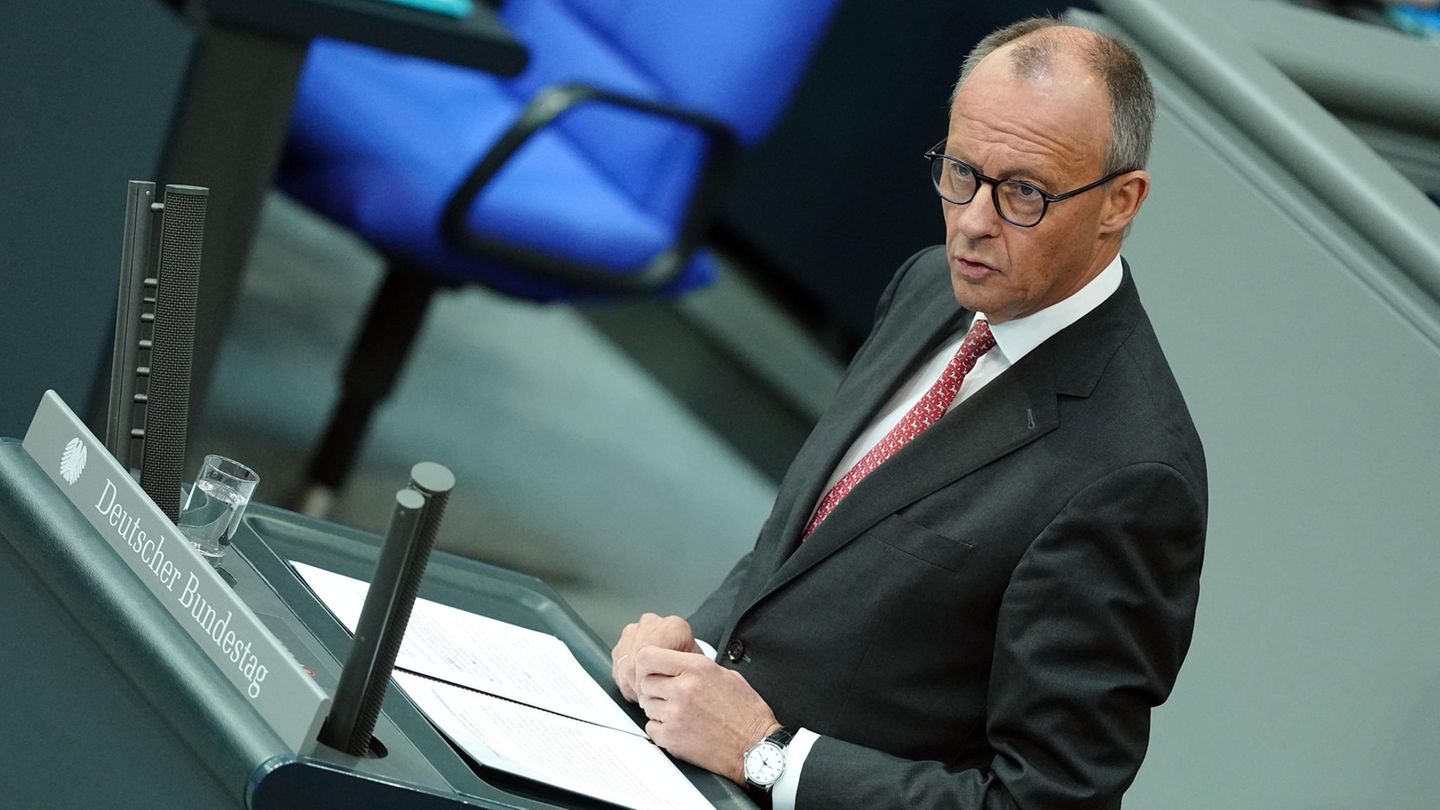Today in the Bundestag it is about the budget of the Chancellery. However, its numbers only play a marginal role – they are the cause of a major debate about government policy as a whole.
The highlight of the budget week is today in the Bundestag: in the general debate, Parliament spends four hours dealing with government policy as a whole. Traditionally, the chairman of the largest opposition faction opens the debate, i.e. CDU leader Friedrich Merz. Then Chancellor Olaf Scholz (SPD) speaks. The main topics are likely to be the current economic crisis and possible measures to overcome it.
Finance Minister Christian Lindner (FDP) presented the draft federal budget for 2024 to the Bundestag on Tuesday. In the ZDF “Heute Journal” he defended his figures. The debt brake is not synonymous with savings. It is also necessary to set priorities: “Investments in infrastructure, in digitization, in the modernization of our economies. We are doing that. We have planned investments at a record level for the next few years,” he said. “So we decide: What is really necessary? And what is expendable?”
The guard rails are clear: “One guard rail means: the debt brake applies. And the other guard rail is that we want to avoid tax increases. (…) We must not fuel inflation with ever new government spending that is debt-financed. Of course it’s a difficult process, but we overcame it,” said Lindner.
“It’s about acknowledging financial realities”
He had already emphasized the need for a change in budgetary policy when the draft budget for 2024 was presented in the Bundestag. “It’s now about acknowledging financial realities after years when money didn’t seem to matter,” he said. Lindner made it clear that the 2024 budget should only be the beginning of a consolidation of public finances. The opposition criticized the draft.
According to this, federal spending in the coming year should be 445.7 billion euros – more than 30 billion less than this year. The new debt should amount to 16.6 billion euros, around 30 billion less than this year. This is intended to comply with the debt brake anchored in the Basic Law, which only provides for new debts to a very limited extent.
The budget plans of the individual departments will be discussed in the first reading until Friday. Defense, foreign affairs and transport are also on the agenda on Wednesday. According to the current status, the overall budget is to be adopted on December 1st.
Source: Stern
I have been working in the news industry for over 6 years, first as a reporter and now as an editor. I have covered politics extensively, and my work has appeared in major newspapers and online news outlets around the world. In addition to my writing, I also contribute regularly to 24 Hours World.




